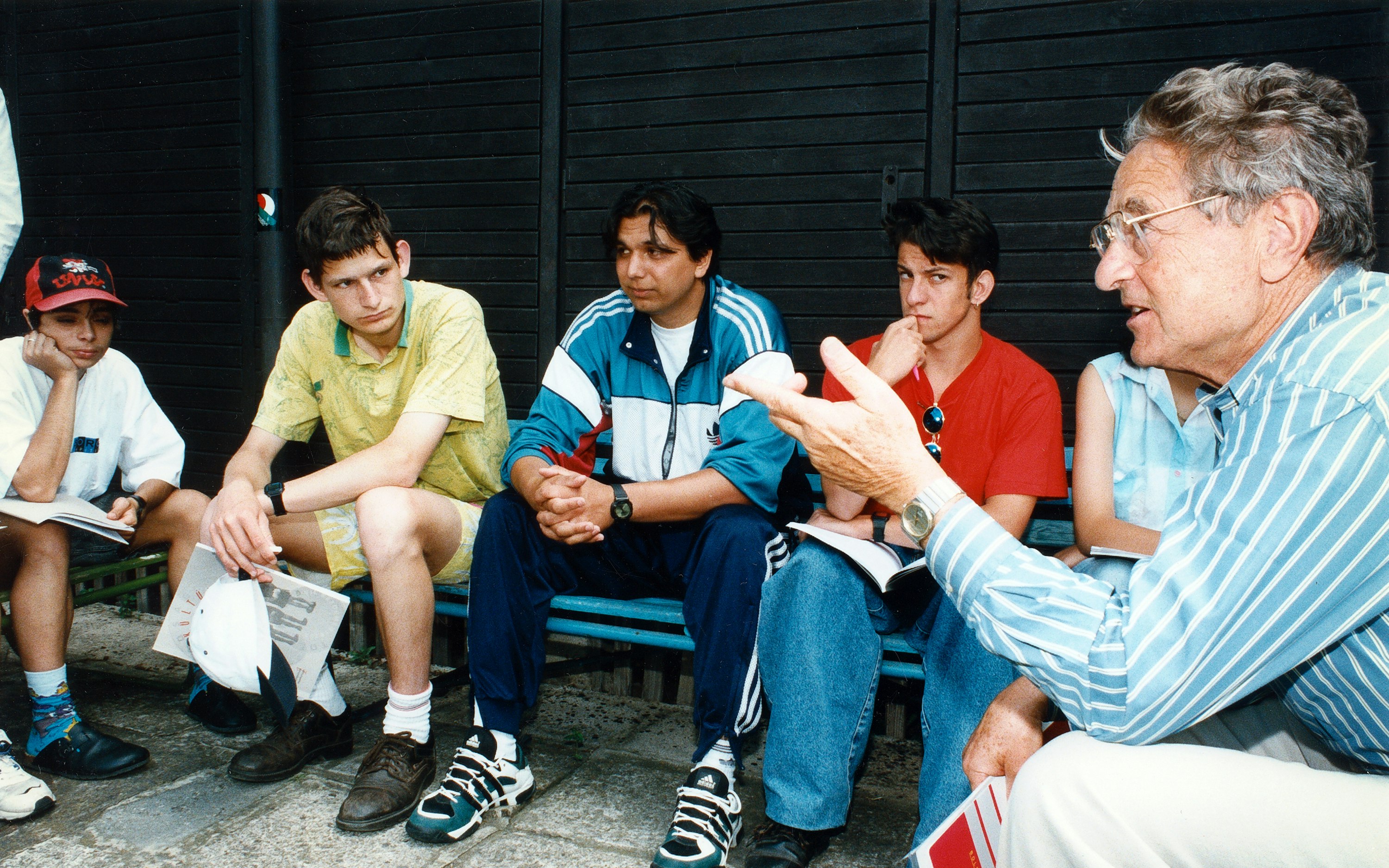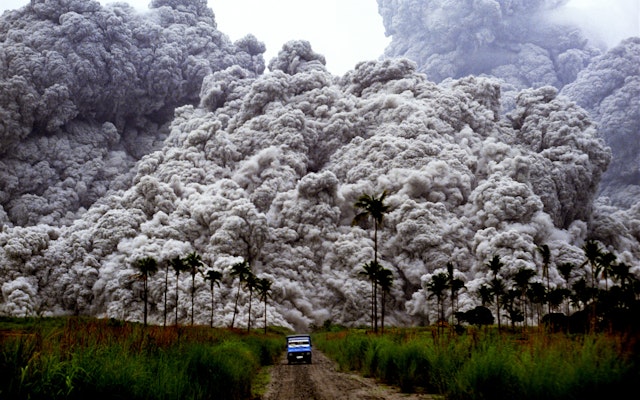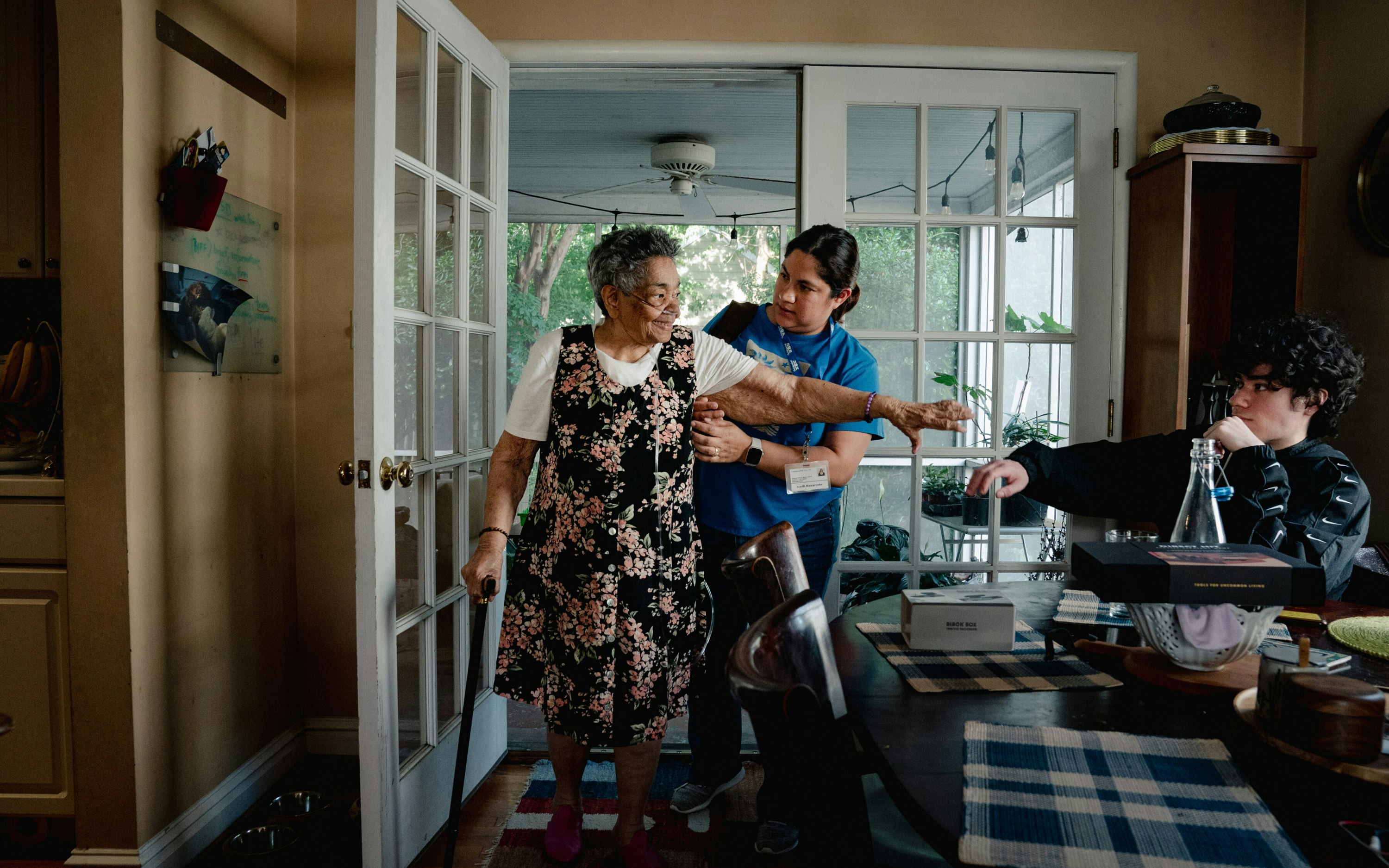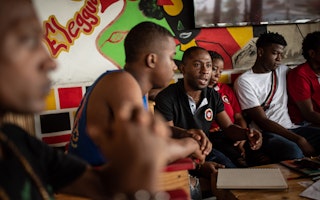In Depth
Inside the Archives: George Soros and the Fight for Roma Dignity
For over 40 years, George Soros has been the leading private supporter of Europe’s Roma—the continent’s largest and most excluded ethnic minority—championing Roma leaders in their fight for equality and against deep-rooted discrimination.

Inside Open Society
Forging New Paths to Green Development for the Global South

With climate disasters becoming more frequent and economic insecurity fueling unrest, the green transition can be a vital catalyst for countries to become more equal and prosperous, while protecting the planet.
Visual Storytelling
Q&A: Visual Witnesses: Photojournalism in a Changing World

World Press Photo Foundation's executive director reflects on the organization’s legacy, its evolving role in photojournalism, the impact of AI on the industry, and efforts to promote diversity and inclusivity in visual storytelling.
Inside Open Society
Reimagining Drug Policy with Compassion and Justice

Drug policy should be rooted in principles of public health, human rights, and uphold human dignity. Open Society strives to promote humane, evidence-based approaches to drugs and drug use worldwide.
Topics
Latest Voices
In Depth
Inside the Archives: How George Soros Changed End-of-Life Care in America
The Project on Death in America ran from 1994 to 2003, with an ambitious goal: to transform the experience of dying in the U.S. Journalist Elizabeth Rubin spoke with Dr. Kathy Foley, the physician George Soros chose to lead it, to reflect on its impact.

Inside Open Society
People-Centered Approaches to Ensure Security and Rights for All

Safe and secure communities are cornerstones for open societies and strong democracies. At Open Society, we're taking a transformative approach to build safe and secure communities that put people at the heart of the solutions to crime and violence.
Independent Journalism
Forever No More: From Destruction to Rebirth, the Critical Need for Supporting Syrian Journalism

As Syria rebuilds after the overthrow of its dictator Bashar al-Assad, an independent journalism outlet has been helping to build the public sphere to ensure Syrians are guaranteed the rights and freedoms they deserve.
Ukrainian Resiliency
Beyond the War, Ukraine Must Win the Peace and Recover

Three years ago, Russia launched a full-scale invasion of Ukraine. But the country remains resilient, bolstered by a civil society striving to ensure that it will be Ukrainians who shape the nation’s future.
Protecting Civil Society
Persecution at Home and Abroad: Pakistani Human Rights Defenders on the Run

Fazl and Nazish, rights defenders from Pakistan, faced exile for their efforts to encourage public health campaigns and women's education. They were assisted by the Shelter City Initiative, which provides support to rights defenders in danger.
Online Hate Speech
New SEC Complaint Says Meta Misled Shareholders over Myanmar Hate

A whistleblower complaint to the SEC argues that the social media giant Meta misrepresented its role in fueling violence against Myanmar’s Rohingya—highlighting the need for more platform accountability for online hate.
Meeting the Moment
Funding New Paths Toward Open Society—an Update

The Open Society Foundations have adopted new approaches to grant giving, aiming to deliver positive change in a rapidly evolving world.
Inside Open Society
Strengthening Protection for Rights Defenders

Over the past decade, more than 3,000 people have been murdered for speaking out against human rights abuses, often in remote areas where perpetrators can escape the gaze of the wider community.
Reparatory Justice
Championing Reparations for Africans and People of African Descent

The global reparations movement to address the historical injustices of slavery and colonialism is gaining momentum. Open Society is playing a key role in supporting it through strengthening its infrastructure and sustainability.
State of Democracy
Q&A: In a Year of Elections, a Podcast Takes Stock of Democracy

More people are going to the polls in 2024 than ever before. Oxford University’s Ben Ansell has been taking a global look at both the strengths and challenges of the process as host of the What’s Wrong with Democracy? podcast.